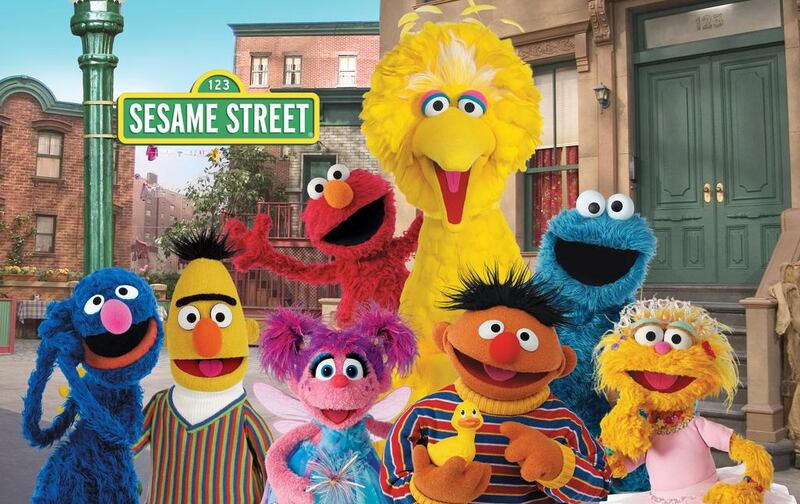When Iftah Ya Simsim, the fondly remembered educational TV show for children, finally returns to the region's screens next year, all the old favourite characters will be back – with a few modern twists for a new generation.
After four years of planning, filming is due to begin towards the end of the year, with a planned TV premiere date in the spring.
For those too young to remember, Iftah Ya Simsim is the Arabic version of the long-running American children's educational show Sesame Street. The Kuwaiti-produced original version of the show debuted in 1979 and ran for more than a decade until production was halted because of the 1991 Gulf War.
The show was much more than simply dubbed episodes of the English-language, American-made favourite. It was supported by educational experts, psychologists and sociologists from the region, who helped to create a suitable educational and cultural curriculum.
It also involved the Joint Programme Production Institute, which sent a team to New York to work closely with the Children’s Television Workshop (CTW), the show’s US creators, and learn about their groundbreaking approach to educational kids’ TV.
Iftah Ya Simsim is widely acclaimed as the first educational TV show of its kind in the Arab world. It is credited as the first regional co-production to use Modern Standard Arabic, and recognised for adapting favourite characters from the US show – such as Bader and Anees (Bert and Ernie) – and creating brand new regionalised creations such as No'man, the camel that instantly became a favourite with the young viewers.
The new show has quite a legacy to live up to, then and the new producers are not taking this lightly. The journey to production has been long and carefully planned – talks about a relaunch began in 2010 between The Sesame Workshop (the non-profit educational institution that succeeded CTW) and the Arab Bureau of Education for the Gulf States, with a deal signed between the two the following year in Riyadh.
Following that, a two-year research and preproduction process began, with more than 80 educational and media specialists attending one seminar in 2011 alone. A new company, Bidaya, based at twofour54 Abu Dhabi, was established to produce the new adaptation.
Following a review and guidance meeting of government agencies and academic institutions from across the GCC, the producers have announced that new episodes are about to go into production.
Robert Knezevic, the senior vice president for international projects at Sesame Workshop, is confident the reboot will be a worthy successor to the much-loved original.
"We have some amazing partners here in the Gulf who are really at the forefront of this revival of a classic Arabic adaptation of Sesame Street," he says. "We've helped create 32 international adaptations of Sesame Street over the years, but one of the very first was the original Iftah Ya Simsim back in 1979.
“This revival is a collaboration that is a process of bringing educators and creatives together to develop both the curriculum and the entertaining way that one delivers that curriculum to children.”
Knezevic reveals that one of the key inspirations behind the creation of CTW came when its co-founder, Joan Ganz Cooney, heard her own children singing the jingles to television commercials.
“She thought ‘if Madison Avenue [the traditional home of the United States’ advertising industry] can use TV to sell Coke to children, why can’t we use it to sell the alphabet, friendship, cooperation and numbers?’ ” he says.
The new version will be staying true to these traditional values, but also be moving into the 21st century with all the related apps for tablets and smartphones.
"There is a heritage and a history with Iftah Ya Simsim dating back to 1979 when well-loved characters and a format were created," says Knezevic. "We'll certainly be tapping into that but we'll also be tapping into tablets and the digital world and meeting the 21st-century needs of children. And we're also informed by the local needs of the community and how that affects the way we deliver that amazing level of education in a manner and in a format that's appropriate for its own children."
Iftah Ya Simsim has already secured funding for two years of production thanks to investments from Mubadala and Sesame Workshop.
That’s good news for the region’s kids, but as the twofour54 chief executive, Noura Al Kaabi, notes, it’s also good news for the students, freelancers and partner companies at twofour54 who stand to gain from another long-term, ongoing production in the media hub, and ultimately good news for the region’s production industry as a whole.
cnewbould@thenational.ae





